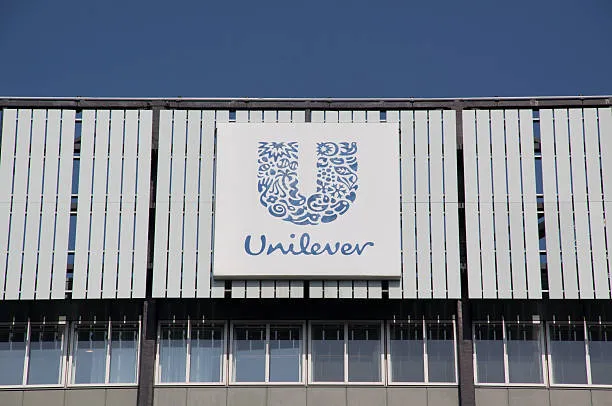
The urgency of the climate crisis has never been clearer. Governments, businesses, and communities alike face mounting pressure to curb emissions, adapt to climate risks, and accelerate the shift toward a net zero economy. Against this backdrop, Unilever has published a new report that highlights how businesses and governments can work more effectively together to deliver meaningful progress. The report emphasizes that aligning corporate strategies with national climate roadmaps is essential for creating momentum, unlocking investment, and delivering faster emissions reductions.
For Unilever, the journey to meeting its 2030 climate targets is not solely dependent on internal action. Instead, the company recognizes that progress hinges on broader policy frameworks and market conditions. Stronger national ambition, backed by supportive regulations and incentives, creates the enabling environment in which companies like Unilever—and the thousands of suppliers and partners in their value chain—can take decisive steps forward.
Building the Ambition Loop: Business and Government as Mutual Catalysts
Unilever’s new report, produced in partnership with corporate sustainability advisory firm ERM, sets out a clear vision: climate action becomes significantly more powerful when corporate transition plans and national commitments reinforce one another. The document outlines practical mechanisms for this alignment, along with real-world case studies from Unilever’s own operations.
The idea is simple but powerful. Nationally Determined Contributions (NDCs)—the climate roadmaps that countries submit under the Paris Agreement—set the tone for global ambition. They not only articulate emission reduction targets but also signal to investors and companies the long-term direction of economic transformation. When NDCs are ambitious and backed by credible delivery mechanisms, they help de-risk private investment, create level playing fields across industries, and provide the policy certainty businesses need to unlock capital at scale.
In return, businesses can support these national goals by designing climate transition strategies that are consistent with, and contribute to, the achievement of NDCs. This creates what Unilever describes as an “ambition loop”: the more ambitious governments are, the more businesses can invest in low-carbon technologies and innovation. And the more businesses act, the more evidence and support governments have to raise their own ambitions further.
The Road to COP30: A Pivotal Moment for Climate Commitments
The timing of Unilever’s report is deliberate. In November 2025, world leaders will gather in Belém, Brazil, for COP30—the United Nations Climate Change Conference. Ahead of the summit, countries are expected to submit updated NDCs outlining their climate targets for 2035. These submissions will play a decisive role in determining whether the world can stay on track to limit global warming to 1.5°C.
Unilever stresses that the months leading up to COP30 represent a once-in-a-decade opportunity to close the gap between current pledges and what science says is necessary. Stronger NDCs, the company argues, are not just good for the planet; they are also essential for long-term economic prosperity. By laying out ambitious but credible roadmaps, governments can open new growth opportunities, strengthen energy security, create jobs, and help businesses transition more smoothly.
A Call to Business: Support Stronger NDCs
While governments bear the responsibility of submitting updated NDCs, businesses have an important role to play in shaping and supporting these commitments. Unilever is urging peers across industries to join in championing stronger, high-quality NDCs that are investible, credible, and ambitious enough to drive systemic transformation.
Rebecca Marmot, Unilever’s Chief Sustainability and Corporate Affairs Officer, makes the case plainly:
“We call on every business that values long-term success and planetary health to use this moment to champion stronger, high-quality NDCs—not just for their own resilience, but to help drive systemic change across the global economy.”
In other words, climate leadership is not a matter of corporate social responsibility alone. It is a prerequisite for competitiveness, resilience, and the creation of markets that will define the next generation of economic growth.

Four Examples of How Unilever Is Driving Climate Action
To demonstrate what this alignment can look like in practice, Unilever highlights four initiatives that support national priorities while also advancing its Climate Transition Action Plan (CTAP).
1. Supporting Indonesia’s Clean Energy Transition
In North Sumatra, Unilever has become the first company in Indonesia to purchase biomethane for industrial use. At its palm oil processing facility, natural gas is being replaced with biomethane derived from palm oil mill effluent. This switch not only reduces emissions from Unilever’s operations but also prevents methane—a greenhouse gas over 80 times more potent than carbon dioxide in the short term—from being released into the atmosphere. The project illustrates how corporate investment can accelerate a country’s broader energy transition while delivering immediate climate benefits.
2. Scaling Regenerative Soy Farming in Brazil
Through a partnership with CJ Selecta, Unilever Foods has invested R$32 million (€5 million) in the Renova Terra programme. The initiative aims to transition 45,000 hectares of soy fields in Brazil’s Cerrado region to regenerative agricultural practices by 2030. This transformation will cover up to 90% of the soy footprint of Hellmann’s mayonnaise in Brazil. Beyond reducing emissions, the programme enhances soil health, boosts biodiversity, and builds resilience against climate impacts—while supporting Brazil’s own efforts to scale sustainable agriculture and maintain its leadership in global soy production.
3. Accelerating Decarbonisation in India’s Chemicals Industry
Unilever, through its subsidiary Hindustan Unilever (HUL), is playing a leadership role in decarbonising India’s chemicals sector. The company is working to replace fossil-based feedstocks with renewable and recycled alternatives in its Home Care products. HUL chairs a government-backed working group that was launched during India’s G20 Presidency in 2023 to chart a roadmap for sustainable chemicals. By collaborating with industry and academic partners, Unilever has also contributed to a white paper identifying technologies and policies that could accelerate this transition. This work is aligned with India’s goal of achieving net zero by 2070.
4. Unlocking Renewable Power Through PPAs in India
India’s supportive policy environment for renewable energy has enabled innovative corporate action. Unilever has signed a landmark Power Purchase Agreement (PPA) that will deliver solar energy to 32 sites across 15 states, including factories and facilities of its suppliers. The deal, made possible by government incentives such as waived central transmission charges, is expected to cut 28,000 tonnes of CO₂e emissions annually while delivering 25% cost savings over 20 years. The initiative demonstrates how government policy can trigger private sector investment at scale.
Bridging the Gap Between Ambition and Action
Unilever’s report makes it clear: while corporate initiatives are essential, they are not sufficient in isolation. The world needs systemic transformations—spanning energy, agriculture, chemicals, and beyond—that require the combined weight of government policy and corporate investment. Aligning business strategies with ambitious NDCs is the bridge that can close the gap between today’s incremental progress and the scale of transformation needed.
The months ahead will test whether governments and businesses are ready to step up together. As Unilever argues, the stakes are nothing less than the ability to create a stable, resilient, and prosperous global economy that can thrive within planetary boundaries.




